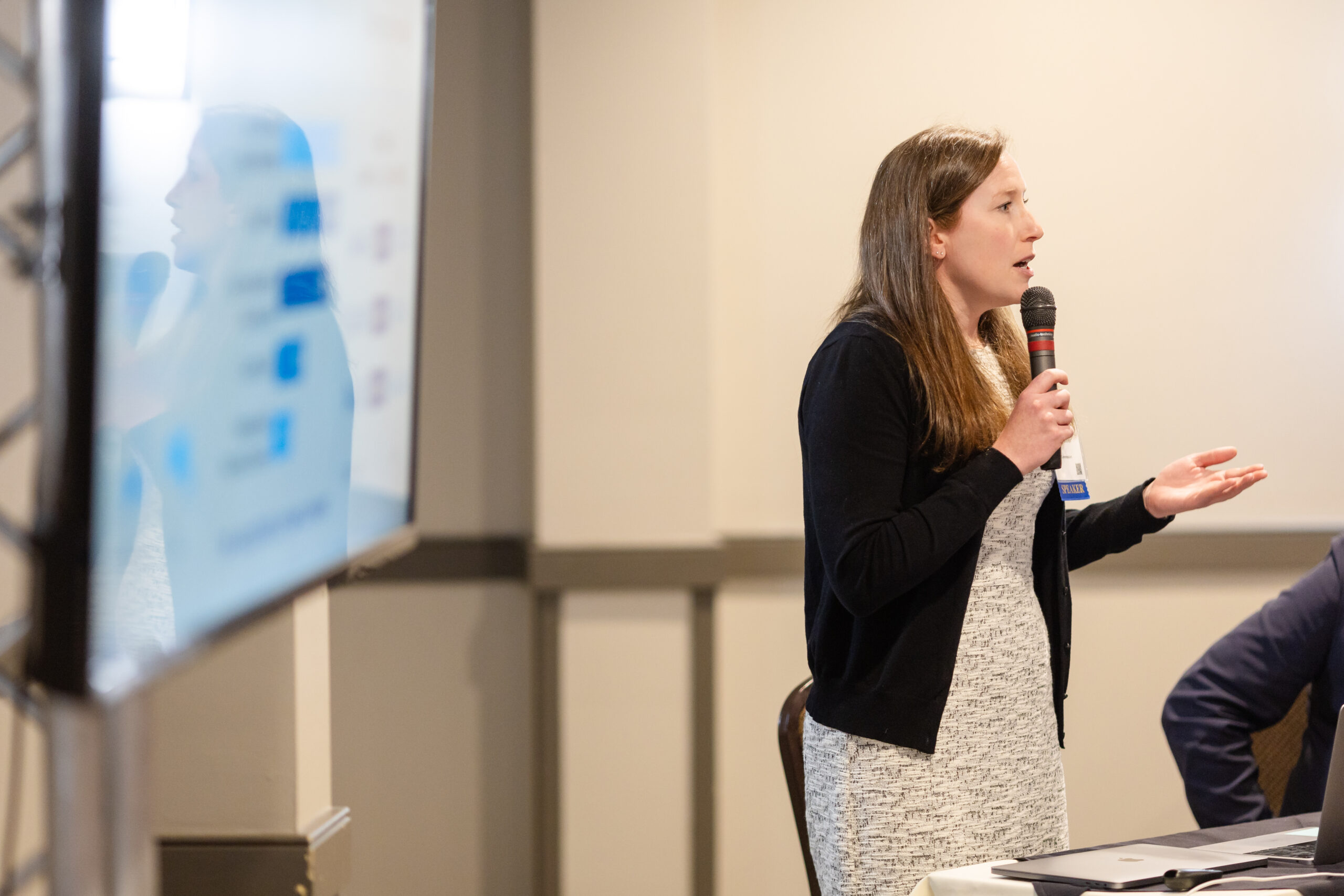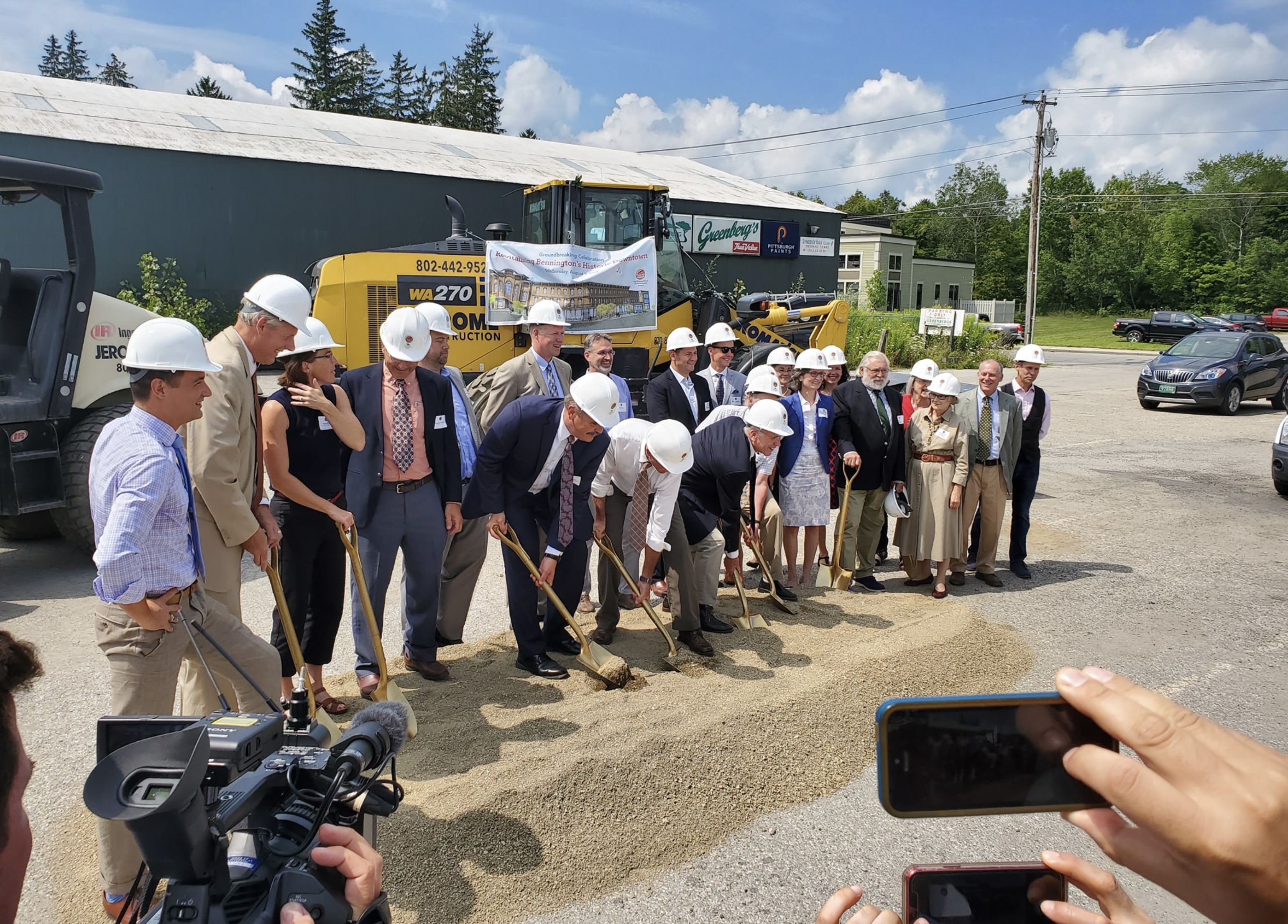
‘How Can our Communities Meet the Climate Challenges of Tomorrow?’ Panel at the SoVT Economy Summit
“It’s easy to divide ourselves but the commonality of what we have at stake is really important.” – Chris Estes, Co-Executive Director, Aspen Institute Community Strategies Group.
At the Southern VT Economy Summit on May 21, 2024, four national, regional, and statewide presenters spoke about how to accomplish long term climate resilience planning at a regional level across multiple sectors, taking into consideration human, economic, and natural resources.
BCTV recorded the panel, which you can view in full at: https://www.brattleborotv.org/southern-vermont-economy-summit/southern-vermont-economy-summit-how-can-our-communities-meet-climate.
Using Regional Partnerships to Create Resiliency in your Community
Elizabeth Baxter, the Manager of Disaster Recovery & Economic Development Planning at the Miami Valley (OH) Regional Planning commission opened the session with a presentation entitled “Using Regional Partnerships to Create Resiliency in your Community.” Baxter described how her agency (which is a voluntary member organization serving 97 members across 6+ counties in Southwest Ohio) helped coordinate regional disaster recovery following devastating tornadoes in 2019. lanning required coordination by her agency and cooperation across multiple areas: housing, natural resources, community planning, infrastructure systems, economic recovery and health and social services.
As Baxter noted in the question and answer period at the end of the session, the work has now progressed beyond recovery to long term planning. “Some of these conversations have been very siloed so that we weren’t planning together. One thing we are striving to do is to bring people together that may have not started to have those conversations to start planning for the future. So we’re bringing together our water professionals, our Economic Development professionals, our land use and planning people and getting them to think about how we protect not just our natural resources but our human assets as well, our people.”
Regional Planning for Local Action
Chloe Schaefer, chief planner at the Cape Cod Commission next shared a presentation entitled ‘Regional Planning for Local Action.’ She started by outlining some similarities between our region and Cape Cod: an older population, a high percentage of second homes, an economy that depends on preservation of historic local and natural resources, and a strong tradition of governance at the local level. In this context, Schaefer shared both regional planning documents and municipal action toolkits that her agency designed for implementation at the local level.
Stephanie Smith, Vermont’s State Hazard Mitigation Officer, then described state-level planning for disaster management in Vermont. She described how, in addition to inundation (a ‘traditional’ flood situation), Vermont property and infrastructure is often subject to damage by erosion. She highlighted some successful mitigation projects around the state, ranging from infrastructure solutions to strategic land buyouts in floodplains. However, she noted that absent regional (or even strong local) planning, it can be hard for communities to know how or if to take advantage of things like buyouts for property in flood prone areas. For example, when housing is already in short supply, “A lot of our communities are stuck in a place right now, where they maybe don’t want to move forward with buyouts at all, because they don’t have a plan (for housing stock).”
Through Natural Disaster to Prosperity: A Call to Action
Finally, Chris Estes, co-executive Director of the Aspen Institute Community Strategies Group shared some of his organization’s recent work, outlined in the white paper Through Natural Disaster to Prosperity: A Call to Action. Estes reviewed ingredients for more productive conversations about resilience planning and disaster recovery. Rather than adopting an ‘insurance model’ where properties are restored to pre-disaster conditions, communities can assess their needs, and prioritize community health over transactional, ‘build-it-back’ recovery models. These strategies are included in the slide deck which Estes shared.
When asked by Windham Regional Commission Executive Director Chris Campany about how to overcome the intense regionalism that Vermont’s system creates (absent county jurisdictions), Estes replied, ‘This is where regional leadership discussions really matter. Any opportunity where you can (convene) not just the traditional leaders, the elected officials, but people who are leaders in their community, to be able to participate in regional leadership development conversations to build trust and awareness that cut across (siloes).”
Further, Estes suggested that “the planning and sustainability of your economic engine might be the other element to push people out of their comfort zones. And it’s only going to get more important to cut across the lines. It’s easy to divide ourselves but the commonality of what we have at stake is really important.”



